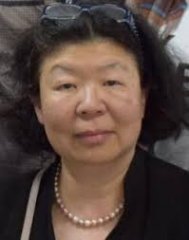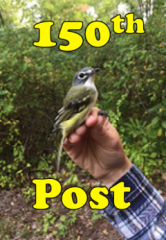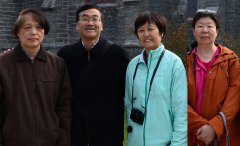News & Announcements
We are pleased to announce the following PB Master's thesis defense
We are pleased to announce the following PB Master's thesis defense
Levi Lilly
Thursday, April 5, 2018
10:00 AM
Paige Lab, Room 202
Thesis Title: Impact of Oyster Mushroom Mycelium on the Growth of Kale and Forage Radish
Thesis Advisor: Geunhwa Jung
UMass Amherst Biologist Elsbeth Walker Will Study Plants’ Iron Regulating System
UMass Amherst Biologist Elsbeth Walker Will Study Plants’ Iron Regulating System
A decade or so ago, scientists discovered genes they thought could be turned on to make plants take up more iron from the soil, enriching cereals, grains and other staple foods that feed millions of people around the world an iron-poor diet leading to iron deficiency anemia, says molecular biologist Elsbeth Walker at the University of Massachusetts Amherst. “But it didn’t work,” she adds. “Somehow the plants downregulated our efforts, and we don’t understand how.”
Now Walker has a three-year, $870,000 grant from the National Science Foundation’s Physiological Mechanisms and Biomechanics program to learn how plants thwarted those past efforts and further, how plants firmly control iron in their systems. Read More
Alice Cheung, Susan E. Hankinson, and Max Page Receive 2018-2019 Samuel F. Conti Faculty Fellowship Awards
Alice Cheung, Susan E. Hankinson, and Max Page Receive 2018-2019 Samuel F. Conti Faculty Fellowship Awards
A University of Massachusetts Amherst Samuel F. Conti Faculty Fellowship provides faculty members with a unique opportunity to focus on their research or creative activities. These Fellowships are managed by the office of the Vice Chancellor for Research and Engagement (VCRE) and provide a one-year release from teaching and service duties in addition to a $3,500 cash award. Read More
Miriam Hernandez-Romero Receives a 2018 ASPB Recognition Travel Award
Miriam Hernandez-Romero Receives a 2018 ASPB Recognition Travel Award
UMass Amherst Plant Biology Graduate Student Miriam Hernandez-Romero has received a 2018 ASPB Recognition Travel Award to attend attend the upcoming Plant Biology 2018 Symposium in Montréal. Plant Biology 2018 is a joint meeting of the American Society of Plant Biologists (ASPB), Canadian Society of Plant Biologists/Societe Canadienne de Biologie Vegetale, and the International Society of Photosynthesis Research at the Palais des congrès de Montréal. Plant Biology 2018 attendees will come from 36 countries and 46 states in the US. Read More
We are pleased to announce the following PB Master's thesis defense
We are pleased to announce the following PB Master's thesis defense
Julie Stultz Fine
Wednesday, March 21, 2018
10:00 AM
Holdsworth, Room 312A
Thesis Title: Integrating no-till and cover crop mixtures for sustainable sweet corn production in the Northeast
Thesis Advisor: Masoud Hashemi
Baskin and Fritz-Laylin Awarded Whitman Center Fellowships
Baskin and Fritz-Laylin Awarded Whitman Center Fellowships
Two members of the Biology faculty, Professor Tobias Baskin and Assistant Professor Lillian Fritz-Laylin, have been awarded separate Whitman Center fellowships to support research this summer at Woods Hole Marine Biological Laboratory (MBL) on Cape Cod. Read More
Study Suggests Evolutionary Change in Protein Function Respects Biophysical Principles
Study Suggests Evolutionary Change in Protein Function Respects Biophysical Principles
AMHERST, Mass. – Some molecular biologists who study the proteins that regulate cell operations, including Elizabeth Vierling at the University of Massachusetts Amherst, do not confine their research to understanding the molecules’ current roles. They also look deep into the proteins’ evolutionary past to explore what structures have allowed proteins with new functions to develop in response to new needs.
An expert in how plants cope with heat, Vierling’s interest for many years has been small heat shock proteins (HSPs), which accumulate in plants at high temperatures and appear to act as “molecular chaperones” to protect other proteins from damage. Read More
New UMass Amherst, Stanford Research Identifies Plant Cell Wall Sensing Mechanism
New UMass Amherst, Stanford Research Identifies Plant Cell Wall Sensing Mechanism
An international collaboration of plant researchers this week reports yet another newly discovered role for the versatile receptor kinase, FERONIA, in the model plant Arabidopsis. The researchers say it acts as a sensor in the plant cell wall to help maintain its integrity and protect the plant from environmental assaults.
How cells sense their physical state and compensate for cell wall damage is poorly understood, say authors led by Alice Cheung at the University of Massachusetts Amherst and collaborator José Dinneny from the Carnegie Institute for Science and Stanford University. But their new analysis of plants exposed to salt stress offers the first experimental evidence and molecular mechanisms showing how FERONIA is essential for the cellular responses that ensure survival under high salinity.
Details are online now and will be in the March 5 issue of Current Biology. Read more
That's Life [Science] grad student blog publishes their 150th post
That's Life [Science] grad student blog publishes their 150th post
Graduate students in the UMass IDGP programs created That's Life [Science], an interdisciplinary outreach blog, in 2016. Since then, the group has published 150 articles covering interesting topics across life science fields for the general public. "A Day in the Life of a Bird Nerd" is their 150th article!
UMass Amherst and Peking University Scientists Advance Knowledge of Plant Reproduction
UMass Amherst and Peking University Scientists Advance Knowledge of Plant Reproduction
Two groups of plant molecular biologists, at the University of Massachusetts Amherst and Peking University, China, have long studied how pollen tubes and pistils, the male and female parts of flowers, communicate to achieve fertilization in plants. Today they report in a Science early release paper that they have identified a pair of receptors essential to these communications as well as molecules that modulate the receptors’ activity. Read More







